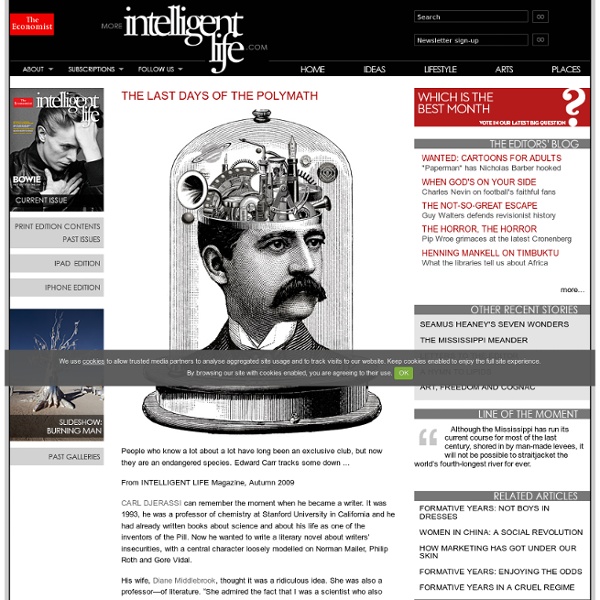THE LAST DAYS OF THE POLYMATH

How the Conservative Worldview Quashes Critical Thinking -- and What That Means For Our Kids' Future | Education
Photo Credit: ShutterStock.com May 18, 2012 | Like this article? Join our email list: Stay up to date with the latest headlines via email. The Conservative War On Education continues apace, with charters blooming everywhere, high-stakes testing cementing its grip on classrooms, and legislators and pundits wondering what we need those stupid liberal arts colleges for anyway. Amid the din, there's a worrisome trend: liberals keep affirming right-wing talking points, usually without realizing that they're even right wing. The hell it is. Our answers to that question could not be more diametrically opposed. A Question of Human Nature Our beliefs about the purpose of education are rooted in even deeper beliefs about the basic nature of humanity. All conservative politics springs from one central premise: they believe that human beings are essentially fallen and deeply flawed.
Can Children Know, At Age 2, They Were Born The 'Wrong Sex'? : 13.7: Cosmos And Culture
iStockphoto Kathryn's Dad thought she was going through a tomboy phase. Kathryn's Mom suspected it might be something more. From the age of two onwards, Kathryn herself was utterly certain: "I am a boy," the child insisted. Kathryn's story was told on the front page of The Washington Post last Sunday, and I found it a gripping tale. It explores Kathryn's sense, expressed consistently through her toddler years, that she is a boy, and her parents' "upheaval" in trying to do the right thing by their child. Tyler (the pseudonym chosen by the Post for Kathryn's new name) now dresses as a boy and attends preschool as a boy. In a course I teach at William and Mary, Evolutionary Perspectives on Gender, my students and I grapple with questions of this nature. Fausto-Sterling takes a dynamic systems approach to gender identity, one where a number of influences work together as a system to affect a child's experience of gender. Furthermore, gender identity may not be fixed throughout life.
The Death of Postmodernism And Beyond
Articles Alan Kirby says postmodernism is dead and buried. In its place comes a new paradigm of authority and knowledge formed under the pressure of new technologies and contemporary social forces. I have in front of me a module description downloaded from a British university English department’s website. Postmodern philosophy emphasises the elusiveness of meaning and knowledge. Most of the undergraduates who will take ‘Postmodern Fictions’ this year will have been born in 1985 or after, and all but one of the module’s primary texts were written before their lifetime. The reason why the primary reading on British postmodernism fictions modules is so old, in relative terms, is that it has not been rejuvenated. What’s Post Postmodernism? I believe there is more to this shift than a simple change in cultural fashion. Let me explain. By definition, pseudo-modern cultural products cannot and do not exist unless the individual intervenes physically in them. Clicking In The Changes
the free encyclopedia
Related:
Related:



